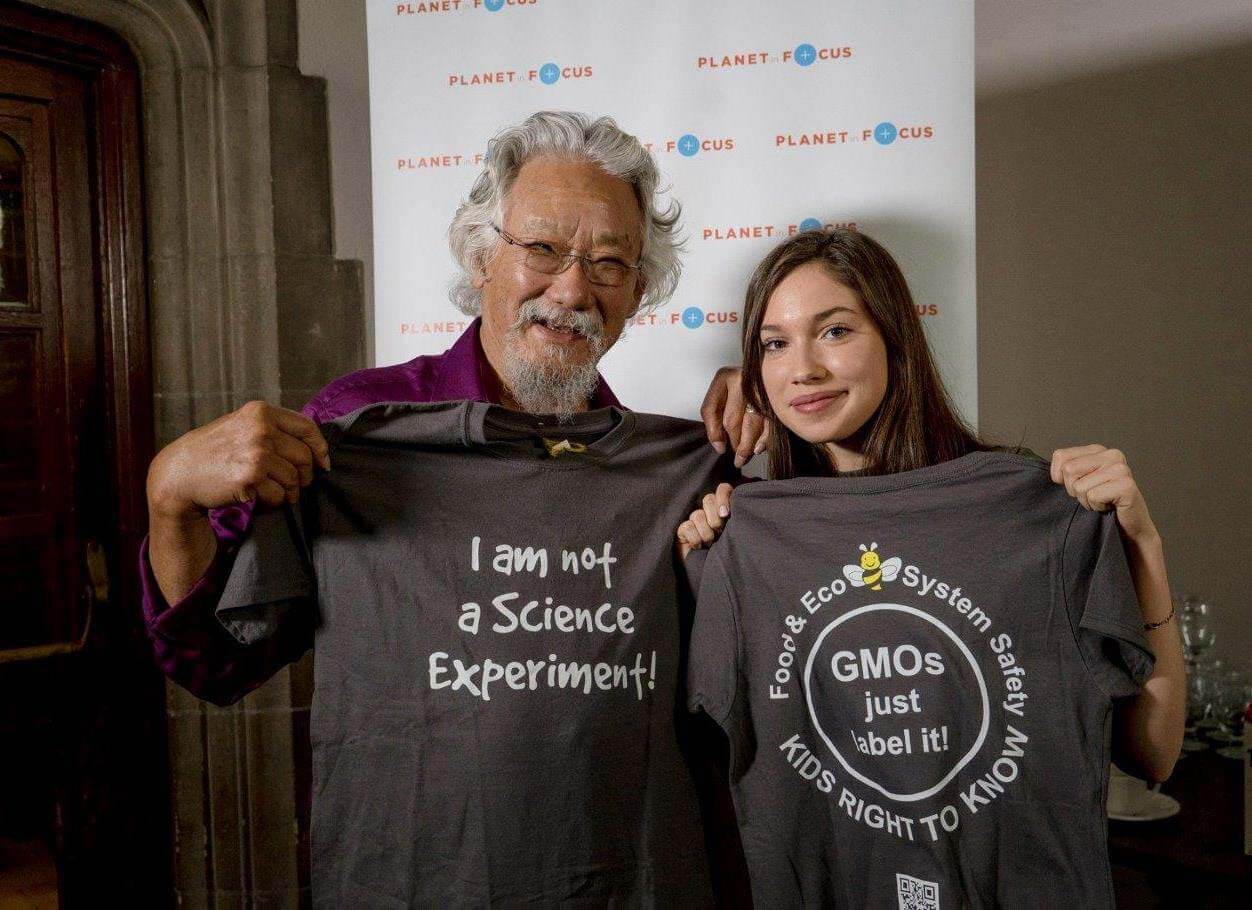Even though food activist Rachel Parent says she leads “a typical teenage life”, her website says otherwise. At 18, she runs Kids Right to Know, a non-profit organization she founded to inform youth about their right to make informed, healthy, and environmentally sound choices—especially about the long-term risks of genetically modified (GM) foods. Rachel is also the Youth Director of Regeneration International 600, a global network for regenerative agriculture and land-use practices, and has been acknowledged as one of Canada’s Top 20 Under 20 Change Makers.
Our phone call to Rachel Parent, one warm summer morning, brought her running from her garden, where she’s currently raising monarch (butterfly) caterpillars. Her love of nature fuels her mission, she says, and as we spoke the air crackled with her energy and impressive depth of knowledge.
“You have to protect what you love,” says Rachel, “and I love spending time in nature. I grew up vegetarian and was always interested in animal welfare but (in elementary school) when we planted seeds, the experience of watching them grow into something we could eat really connected everything for me—and to the conversation we are having now about the importance of food and food sovereignty.”
Food Sovereignty = Food Freedom
“Food is so interconnected with everything we face today, including deforestation, poverty, and politics. Massive biotech corporations are making and patenting GM seeds, which no independent scientist can review to determine their safety. These companies technically own these seeds, but seeds—such a crucial part of our ecosystem—belong to everybody.”
“Farmers buy these GM seeds, and once they get out there, there’s no stopping them: they cross-contaminate, and start genetic pollution. It’s a global problem. Right now, the majority of industrialized nations are growing GM seeds, including Canada and the US.”
Slow Change
In Canada, identifying GM ingredients on food labels is still voluntary; hampered, says Rachel, by powerful corporate interests.
“If we think about it, the food industry is like the tobacco industry, in the way they lobby our government and force consumers to believe a certain view. The only difference is that not everybody smokes, but everybody has to eat. And many corporations and the government are intertwined. One politician we spoke to rents out his farm to a company that grows GM canola. It’s really unfortunate that we have politicians in power with vested interests in biotech and believe that profits are more important than people. We must vote for people who really care about their constituents.”
Consumer Power = Change
The growing movement to buy organic and non-GMO products, says Rachel, shows that we can all affect change by our choices.
“We are advocating for mandatory GMO labelling because consumers have a right to know what’s in their food. Every decision is an action—whether buying clothes, cosmetics, supplements, or food—and has the greatest potential to create change. Every single thing you buy has an impact on our food systems, and our economy. If we, as consumers, demand organic, non-GMO food, farmers will grow it, and manufacturers and producers will create it.”
“When we talk about climate change, the economy, and the environment, we always separate ourselves from the issue, and don’t consider ourselves part of nature. But it’s all interconnected.
“We are in crisis mode. If we don’t step up, nobody else will. The time is now, we can’t wait anymore—and it’s up to every single one of us.”
One planet for all, all for one planet.
What’s a GMO?
A GMO (Genetically Modified Organism) comes from a laboratory process of taking genes from one species and inserting them into another in an attempt to obtain a desired trait or characteristic.
What kinds of genetically engineered traits have been added to our food crops?
Herbicide-tolerant crops, which let the farmer spray weed killers directly on the crop without killing it.
Pesticide-producing crops, where the plant produces its own internal pesticide.
Why should you be concerned about GMOs?
Various feeding studies in animals have resulted in tumors, damaged immune systems and livers, smaller brains, birth defects, reproductive problems, and infertility.
GMOs have also been linked with allergies, various digestive and bowel syndromes, and even autism in humans.
What crops are GM?
Soy (94%), cotton (90%), canola (90%), sugar beets (95%), corn (88%), Hawaiian papaya (more than 50%), zucchini and yellow squash (over 24,000 acres).
Products derived from the above, such as soy protein, soy lecithin, cornstarch, corn syrup, and high fructose corn syrup, as well as oils from soy, cotton, canola, and corn.
Approximately 90% of all products on supermarket shelves contain GMO ingredients.
How do GMOs impact the environment?
Crops are being genetically engineered as “Roundup Ready” so they can withstand massive spraying with the toxic pesticide, which doesn’t readily break down in the environment and ends up in our streams.
New super weeds and super bugs are becoming Roundup resistant, so more and stronger pesticides are being used.
The built-in pesticides found in genetically engineered crops may be largely responsible for the dying off of many insects, including honey bees and monarch butterflies.
18 year old Rachel Parent runs Kids Right to Know, a non-profit organization she founded to inform youth about about the long-term risks of genetically modified (GM) foods.
Courtesy www.kidsrighttoknow.com


